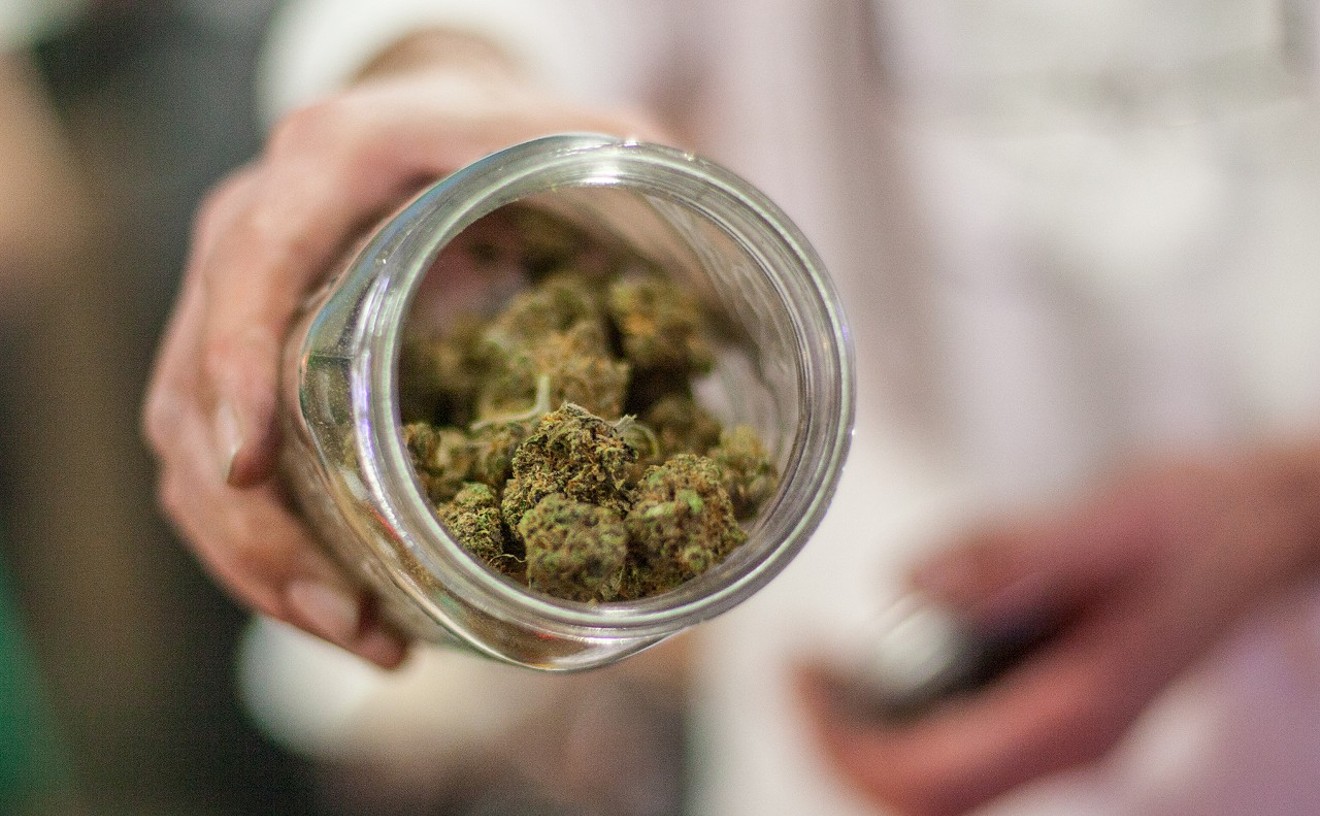In an effort to learn how cannabis use affects driving, Colorado's two major universities are studying the change in a driver's balance, movement ability and reaction time after consuming pot – but to better mirror consumption trends, the study uses subjects who just smoked something much more potent than the schwag our parents grew up with.
The project, headed by the University of Colorado Boulder with assistance from the Colorado State University Department of Health and Exercise Science, measures a participant's overall cognitive and movement ability through ten different tests before and after the participant consumes cannabis. The method of consumption? Vaporizing small globs of cannabis concentrates that are anywhere from 70 to 90 percent THC...which is also known as dabbing.
Funded by an $839,500 grant CU received from the Colorado Department of Public Health and Environment, the study is the first to measure a dab’s effect on motor function and reaction time, according to CSU researcher Brian Tracy. Tracy, who was invited to join the CU research team in early 2017, will run four of the tests through a gyroscope and accelerometer on an iPod Touch, which will save money on equipment costs.
"Once we realized that combining my expertise would add value, I became a collaborator and brought to the project the smartphone-based measures of physical function and the associated analysis of that data," he explains in an email.
Tracy's test is focused on a person's ability to maintain balance while rapidly moving a leg, tapping a finger and moving an arm, while a ballistic leg movement test will determine how fast users can move their legs — all of which are measured on the iPod.
Only users with experience dabbing are allowed to participate in the study; because CU receives federal grants, no cannabis will be administered by the research team, and it won't be consumed on campus. “The team is not providing or administering the cannabis,” Tracy says in a statement. “The subjects are doing what they would normally do, to themselves. It’s an observational study.”
For the past several months, the team has been traveling around the Boulder area in a van outfitted with the testing equipment, studying the participants at their homes before and after they dab. The duration of the study will last three years.
Because of pot's illegal status federally, public universities conducting studies on its medical, behavioral and cognitive effects have to get creative in how and where they research. These obstacles even extend to equipment use, Tracy says, so he turned to a device more known for music apps and Clash of Clans than testing ballistic leg movements.
“The accelerometer can’t leave the lab, because it is connected to very expensive equipment and amplifiers that are not easily portable," he notes. "The iPod is both inexpensive and portable, so it opens up access to researchers in many different settings.”
[
{
"name": "Air - MediumRectangle - Inline Content - Mobile Display Size",
"component": "12017618",
"insertPoint": "2",
"requiredCountToDisplay": "2",
"watchElement": ".fdn-content-body",
"astAdList": [
{
"adType": "rectangle",
"displayTargets": "mobile"
}
]
},{
"name": "Editor Picks",
"component": "17242653",
"insertPoint": "4",
"requiredCountToDisplay": "1",
"watchElement": ".fdn-content-body",
"astAdList": [
{
"adType": "rectangle",
"displayTargets": "desktop|tablet"
},{
"adType": "rectangle",
"displayTargets": "desktop|tablet|mobile"
}
]
},{
"name": "Inline Links",
"component": "18838239",
"insertPoint": "8th",
"startingPoint": 8,
"requiredCountToDisplay": "7",
"maxInsertions": 25
},{
"name": "Air - MediumRectangle - Combo - Inline Content",
"component": "17261320",
"insertPoint": "8th",
"startingPoint": 8,
"requiredCountToDisplay": "7",
"maxInsertions": 25,
"watchElement": ".fdn-content-body",
"astAdList": [
{
"adType": "rectangle",
"displayTargets": "desktop|tablet"
},{
"adType": "rectangle",
"displayTargets": "desktop|tablet|mobile"
}
]
},{
"name": "Inline Links",
"component": "18838239",
"insertPoint": "8th",
"startingPoint": 12,
"requiredCountToDisplay": "11",
"maxInsertions": 25
},{
"name": "Air - Leaderboard Tower - Combo - Inline Content",
"component": "17261321",
"insertPoint": "8th",
"startingPoint": 12,
"requiredCountToDisplay": "11",
"maxInsertions": 25,
"watchElement": ".fdn-content-body",
"astAdList": [
{
"adType": "leaderboardInlineContent",
"displayTargets": "desktop|tablet"
},{
"adType": "tower",
"displayTargets": "mobile"
}
]
}
]












